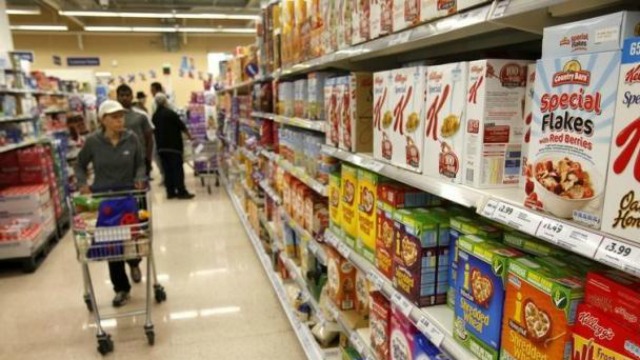Consumer confidence in India has experienced a slight decline, reflecting weaker sentiments about the economic situation, employment prospects, and household income, according to the Reserve Bank of India’s (RBI) latest consumer confidence survey (CCS). At the same time, households are bracing for a further increase in inflation, signaling growing concerns about rising costs across essential and non-essential items.
Current Situation Index Declines
The current situation index (CSI), which measures households’ perceptions of the general economic situation, employment, and personal finances compared to a year ago, fell marginally by 0.7 points. It now stands at 94 in November 2024, down from 94.7 in September 2024. This slight dip underscores a growing sentiment of caution among consumers regarding their immediate financial and economic environment.
The survey, conducted between November 2 and November 11, 2024, captures consumer sentiment across 19 major cities. The findings reveal that while spending sentiment remains stable, perceptions about the broader economic situation and employment opportunities have weakened.
Future Expectations Show Optimism, Except for Inflation
Despite a decline in current confidence, households displayed moderate optimism about the economic outlook for the coming year. The future expectations index (FEI), which gauges households’ expectations for the next year, edged up by 0.5 points to 121.9 in November 2024. This improvement indicates that many consumers remain hopeful about economic recovery, particularly regarding employment and personal finances.
However, inflation expectations are dampening this optimism. Households anticipate rising prices over the next year, driven primarily by food and housing costs. While optimism about income and employment remains, concerns about persistent inflationary pressures continue to weigh heavily on the overall outlook.
Spending Trends: An Increase in Essential and Non-Essential Expenditures
One area where consumers expressed positivity was spending. The survey showed that households anticipate increased spending over the next year, both on essential items and non-essential goods and services. This suggests a willingness to loosen purse strings, possibly reflecting expectations of higher disposable incomes or the inevitable need to cope with rising prices.
Inflation Expectations on the Rise
In a separate survey conducted by the RBI, households’ median perception of current inflation rose by 30 basis points (bps) to 8.4% compared to the previous survey round. This reflects the growing burden of higher costs on households, especially for food and housing-related expenses.
Looking ahead, households expect inflation to rise further:
- Three-month horizon: Median inflation expectations moderated slightly by 10 bps to 9.1%.
- One-year horizon: Expectations increased by 10 bps to 10.1%, suggesting households foresee sustained price pressures in the longer term.
These inflation expectations come amidst a broader environment of global economic uncertainty and domestic challenges. Notably, the RBI’s monetary policy announcement on December 6 raised the inflation forecast for FY2025 from an earlier estimate of 4.5% to 4.8%, signaling a more cautious outlook.
RBI Revises Inflation Forecasts
The central bank’s revisions reflect a more challenging inflationary environment. The consumer price-based index (CPI) inflation forecast for the third quarter of FY2025 has been revised upward to 5.7% from 4.8%, while the forecast for the fourth quarter increased to 4.5% from 4.2%. These adjustments suggest persistent inflationary pressures, particularly in food and housing sectors, which are key components of household expenditure.
Factors Driving Inflation Expectations
The RBI’s survey highlighted that a larger share of respondents anticipates higher prices in the year ahead. Key contributors to this sentiment include:
- Food Inflation: Rising food prices continue to exert upward pressure on household budgets. Seasonal factors and supply chain disruptions may further exacerbate this trend.
- Housing Costs: Housing-related expenses, including rents and maintenance, have also been identified as significant inflation drivers.
- General Price Levels: Broader price increases across essential commodities and services are creating an environment where inflation expectations remain elevated.
Economic Implications
The decline in consumer confidence, coupled with rising inflation expectations, has several implications for the economy:
- Consumption Patterns: While households anticipate increased spending, rising inflation may lead to cautious consumption behaviour, especially if disposable incomes do not keep pace with price rises.
- Monetary Policy: The RBI’s revised inflation forecast and consumer sentiment surveys suggest a tightening monetary policy stance may be on the horizon. The central bank will likely focus on balancing inflation control with growth support.
- Economic Growth: Weaker consumer confidence could weigh on overall economic activity, particularly if consumers delay discretionary spending due to concerns about future financial stability.

The RBI’s latest surveys underscore the complex dynamics shaping consumer confidence in India. While households remain cautiously optimistic about the future, concerns about inflation are dampening their sentiment. Rising costs of food, housing, and other essentials are likely to challenge policymakers as they navigate this uncertain economic landscape.
For consumers, the outlook remains mixed. While spending may rise in the near term, driven by both necessity and optimism, sustained inflationary pressures could lead to financial strain for many households. As the economy adjusts to these challenges, the central bank’s policy decisions in the coming months will be crucial in shaping the trajectory of consumer confidence and inflation expectations.



)